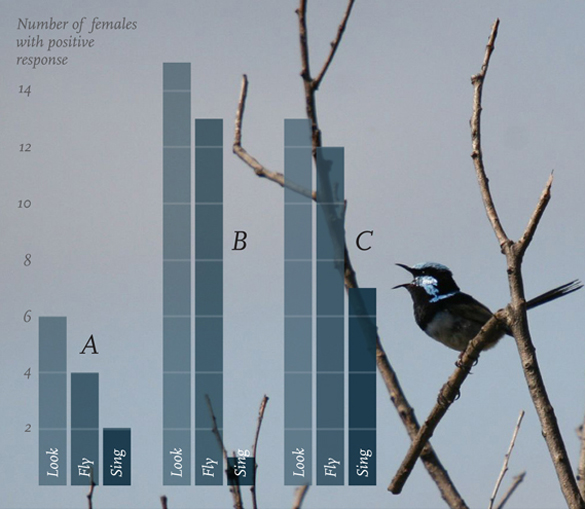Fright response
By Burke Frank, ’11
Graphic by Allen Carroll; photo courtesy Marj Kibby (CC BY-NC 2.0)

Like a teenager who takes his date to a scary movie hoping she’ll huddle close, an Australian songbird seems to rely on predators’ calls to help lure its mate. Noting that the male splendid fairy-wren sings what seem to be come-hither trills just after the butcherbird’s call—so close they resemble a duet—Chicago ecologists Stephen Pruett-Jones and Emma Greig tested whether the predator’s sound increased female response to the fairy-wren’s song. They played solo recordings of the male’s song (A) and the butcherbird call (B) to 20 female fairy-wrens, then paired the songs one after another (C). Females responded significantly more often to the mating song when it came after the predator’s call: they looked for the sound twice as often and flew for cover and sang three times as often. The researchers believe this vocal hitchhiking is an alerting strategy; the butcherbird gets the female’s attention, but then she sings to the male.
Return to top
